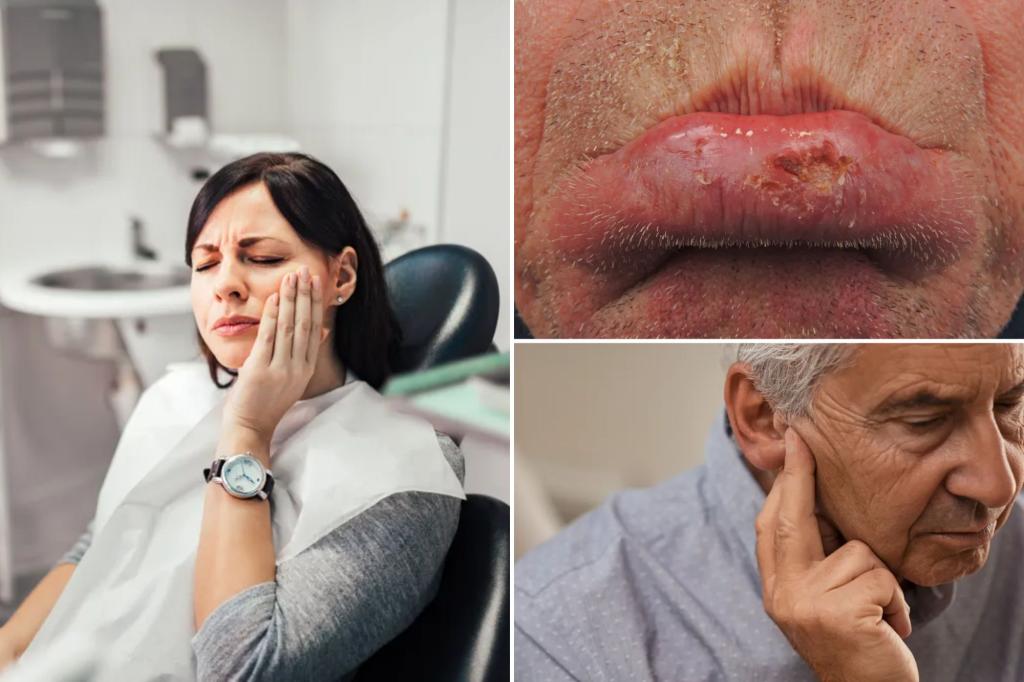
Are you one of the 36% of Americans who dread visiting the dentist? If so, it’s time to reconsider what’s more frightening: facing a dental cleaning or missing out on a crucial opportunity to identify oral cancer early?
“Oral cancer is frequently diagnosed late because individuals fail to recognize early symptoms,” explains Nina Gonzero, an oral health expert at Avangart Dental Clinic located in Istanbul. “We strongly recommend regular dental check-ups, as dentists can often detect early warning signs first.”
Oral cancer can develop in various areas such as the tongue, throat, or the lining of the mouth, including gums and cheeks. While many are aware of common symptoms like persistent mouth sores, unusual lumps, and red or white patches, Avangart has recently highlighted five lesser-known warning signs that require immediate medical attention.

Loose Teeth
A loose tooth that remains unstable for no clear reason, particularly when coupled with discomfort or swelling, could be a serious concern. This condition might reveal the presence of oral cancer.
A tumor around the jaw can lead to significant damage, weakening the bone structure and causing teeth to loosen. Oral cancer may also impact the supportive tissues, altering how your teeth fit together when biting.
Unusual Sensations
If you’re experiencing ongoing numbness or tingling in your mouth or throat with no known cause, it could indicate a possible cancer warning sign.
This occurs when a tumor applies pressure on the nerves in the mouth, resulting in a loss of sensation in areas like the lips, tongue, or jaw.
Ear Discomfort
A constant earache that doesn’t affect your hearing might be a sign of something more serious. It could indicate pressure from a nearby tumor affecting surrounding nerves and tissues.
This discomfort typically manifests on the same side as the oral cancer mass or ulcer due to shared nerve pathways.

Changes in Voice
Unexpected changes to your voice can also point to oral cancer.
This often occurs when a tumor affects the vocal cords in the larynx, which is part of the throat. As the tumor grows, it can interfere with the normal movement and vibration of the vocal cords, resulting in a hoarse or raspy voice.
Persistent Sore Throat
While occasional sore throats are common, a lasting scratchy throat is cause for concern. A chronic sore throat or a sensation of something lodged in your throat that persists despite eating or drinking might signal a warning.
Oral cancer can irritate the mucous membranes within your mouth and throat, occasionally leading to oral mucositis, a condition characterized by inflammation and pain in the mouth lining.
Don’t Overlook These Signs
If you notice any of these symptoms persisting for more than two weeks, the American Cancer Society (ACS) recommends consulting a doctor promptly.
The organization projects that there will be 59,660 new instances of mouth and throat cancer diagnosed in the current year, indicating a concerning trend since the mid-2000s. Oral cancer is most prevalent among individuals over the age of 40, and men are affected more than twice as often as women.
Various risk factors can elevate the likelihood of developing mouth and throat cancers, such as tobacco and alcohol consumption, human papillomavirus (HPV) infection, excessive sun exposure, poor diet, obesity, and genetic predisposition.
ACS estimates that 12,770 Americans will succumb to mouth and throat cancers this year.
As with numerous cancers, early detection is vital. Research indicates that patients who begin treatment within the first month of symptom emergence enjoy an 86% survival rate over five years.
However, that figure drastically decreases to just 47% if diagnosis occurs seven months post-symptom onset. Survival rates become very grim after 12 months.









